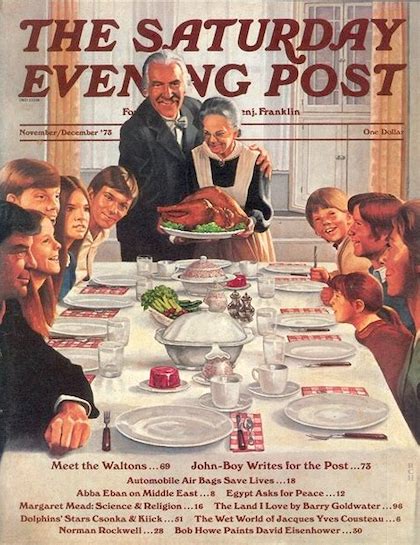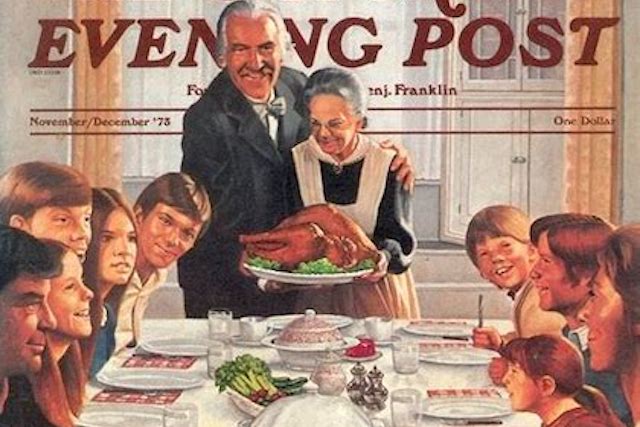 My mother, who spoke many wise truths, always said, “A good thing never makes up for a bad, and a bad thing doesn’t take away from the good.” My early Thanksgivings were my favorite time of year because I loved the stories about Native Americans and pilgrims coming together to celebrate food and friendship. It was also the one time during the year my family took the time to actually acknowledge the good things in our lives.
My mother, who spoke many wise truths, always said, “A good thing never makes up for a bad, and a bad thing doesn’t take away from the good.” My early Thanksgivings were my favorite time of year because I loved the stories about Native Americans and pilgrims coming together to celebrate food and friendship. It was also the one time during the year my family took the time to actually acknowledge the good things in our lives.
Later, when I realized that the Thanksgiving story was a fable and a distortion, I wanted to throw all of it out. However, my mother’s words held true. Although presenting history as a Disney movie that hides the brutality of colonialism and the reality of the imposed suffering of the indigenous people of our country is not a good thing, taking time to express thankfulness for your blessings and sharing them with others is important.
As my dear friend Rev. Jill McAllister recently wrote about Thanksgiving, “It is a day set aside, designated, for awareness of the nature of our relations – a practice as old as humanity, and always being renewed. It is a day of thanks giving and a day of mourning. The traditions of some come at the expense of others; this has been true for generations and it is true in new ways now. May today be a time to learn more, and to take new steps toward right relations – of honesty, equity, respect, compassion and love.”
A beautiful, wildly funny Irish girl, Judy Carroll was the first person who I ever felt “got me.” We were 10 when we met, and we soon became inseparable. Between going to Catholic school and having a family full of secrets, I had seldom been around people who talked about their feelings. For instance, I was not told what really happened when Aunt Betty and Uncle Frank got divorced, why my parents ate separately from Maudal, our African American cook and housekeeper (who I loved and choose to eat with in the kitchen whenever I could), or why my parents sometimes didn’t speak for days at a time. No one thought deeply about what they actually believed (they just had the same political affiliations as their parents before them) and questioning religious beliefs was a sin punishable by eternity in the flames of hell.
But Judy and I questioned everything. We challenged, inquired, wondered, read forbidden books, and memorized poetry about love. We were candy stripers at the hospital twice a week, snuck out at night to walk through North Beach and listen to poets or meet boys at the Marina Greens while drinking beer and smoking Marlboros, and then went to early mass the next morning begging forgiveness. Although our lives took us in different directions after high school, we stayed just as connected as we had been that first day we met, communicating daily. We told each other everything—what happened, what didn’t happen, and what we felt and thought about it all. And put books into one another’s hands constantly, trying to find the answers to life’s burning questions.
Judy died when we were 24 years old.
My deepest gratitude, at its core, has always been the same. I have experienced all the wonders and losses, joys and pains, defeats and victories of a long and well-lived life. Judy didn’t get to have that kind of life, nor did she get to grow old, reflect, or find her own answers to some of the questions we had asked so many decades ago. I miss her every day of my life. In the same breath, though, I give thanks that I have been able to live through so many decades of my own.
Appreciation—not the gooey kind that denies trouble, sorrows, and injustices, but the real kind that lives alongside loss and regret—is the sunlight of our relationships, and surely it is also the sunshine of our lives.
As many of you know, I, along with cofounder Peter Yarrow, Jill Thiry, Linda Ronstadt, and my beloved assistant and friend of decades, Kaylene Campbell, have spent the last three years working in the nonprofit we founded, One Story at a Time. After reading and hearing about the constant horrors of people displaced by floods, poverty, and gangs, I am grateful every day that I am a part of a solution. Though it is as small as a grain of sand in the sea of suffering, it IS a grain of sand, and it makes a difference.
